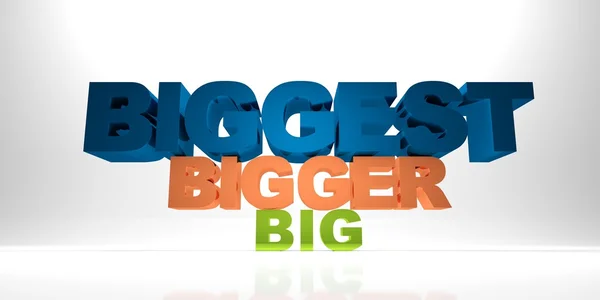Big challenge date 2025: A Confluence of Critical Global Crossroads

The calendar year 2025 looms not merely as another turning page but as a metaphorical "big challenge date 2025" – a critical juncture where a multitude of interconnected global challenges are projected to converge, demanding unprecedented levels of foresight, collaboration, and decisive action. While no single, universally acknowledged event defines this date, 2025 stands poised as an inflection point, a year by which several pressing crises are expected to intensify, requiring societies, governments, and international bodies to confront their complexities head-on. From the accelerating impacts of climate change to the volatile currents of geopolitical power shifts, from the ethical dilemmas posed by rapidly advancing technologies to the enduring struggles for social equity, 2025 encapsulates a period of profound global reckoning.
This article delves into the multifaceted nature of the big challenge date 2025, exploring the key domains where critical pressures are anticipated to peak. It examines the interplay between these challenges, arguing that their solutions are inextricably linked and that a fragmented approach will prove insufficient. Ultimately, it posits that 2025 represents not just a period of peril but also an unparalleled opportunity for humanity to recalibrate its trajectory, fostering resilience, innovation, and a more sustainable and equitable future.
The Climate Imperative: A Deepening Crisis and Decisive Deadlines
Perhaps the most universally acknowledged and existential challenge converging on the big challenge date 2025 is the climate crisis. While the Paris Agreement set a long-term goal of limiting global warming to well below 2 degrees Celsius above pre-industrial levels, preferably to 1.5 degrees Celsius, the window for achieving this is rapidly closing. 2025 is significant for several reasons: it marks a critical milestone in the "ratchet mechanism" of the Paris Agreement, where countries are expected to submit new, more ambitious Nationally Determined Contributions (NDCs). The ambition of these NDCs, or lack thereof, will largely dictate the world’s ability to avert catastrophic warming scenarios.
By 2025, the scientific consensus on climate change will be even more stark, with observable impacts like extreme weather events, sea-level rise, and ecosystem collapse becoming more frequent and severe. The economic costs of inaction, from infrastructure damage to agricultural losses and forced migration, will be increasingly undeniable. The challenge is not merely about reducing emissions but also about adapting to inevitable changes, financing the transition to green economies, and addressing the disproportionate impact on vulnerable nations. The big challenge date 2025 in the climate sphere demands a radical acceleration of decarbonization efforts, a massive scale-up of renewable energy infrastructure, and robust mechanisms for climate finance and loss and damage. Failure to meet these heightened ambitions by 2025 risks locking in a future of irreversible environmental degradation and profound human suffering.
Economic Resilience and Transformation: Navigating Post-Pandemic Volatility
The global economy, still reeling from the cascading effects of the COVID-19 pandemic, faces its own set of formidable challenges by the big challenge date 2025. Persistent inflation, exacerbated by supply chain disruptions and geopolitical tensions, continues to erode purchasing power and destabilize markets. Many nations are grappling with unprecedented levels of public and private debt, raising concerns about financial stability and the capacity for future investment. The transition to a green economy, while essential, also presents significant short-term economic dislocations, requiring substantial investment in new technologies, retraining of workforces, and the phasing out of carbon-intensive industries.
By 2025, the world will likely be further along in grappling with the implications of de-globalization or "friend-shoring," where geopolitical considerations increasingly influence trade and investment flows. This could lead to higher costs, reduced efficiency, and greater economic fragmentation. Furthermore, the widening gap between the wealthy and the poor, both within and between nations, continues to fuel social unrest and undermine economic stability. The big challenge date 2025 in the economic realm necessitates innovative fiscal policies, robust international financial cooperation, and a renewed focus on inclusive growth that prioritizes social safety nets, equitable access to opportunities, and sustainable development pathways. The challenge is to foster an economy that is not only resilient to shocks but also inherently regenerative and just.
Technological Frontier and Ethical Dilemmas: The AI Revolution and Beyond
The rapid acceleration of technological innovation, particularly in artificial intelligence (AI), biotechnology, and quantum computing, presents both immense opportunities and profound challenges by the big challenge date 2025. AI, in particular, is poised to revolutionize industries, transform labor markets, and redefine human-machine interaction. However, this transformative power comes with significant ethical and societal implications. Concerns about job displacement, algorithmic bias, privacy violations, and the potential for autonomous weapons systems are growing. The "big challenge date 2025" in technology demands the urgent development of robust ethical frameworks, regulatory guidelines, and international norms to govern the responsible development and deployment of these powerful tools.
Beyond AI, advances in synthetic biology, gene editing, and neurotechnology raise complex questions about human identity, health equity, and the very definition of life. Cybersecurity threats continue to escalate, with state-sponsored attacks and ransomware increasingly targeting critical infrastructure and democratic processes. By 2025, the digital divide – the gap between those with access to technology and those without – could widen further, exacerbating existing inequalities. The challenge is to harness the transformative potential of technology for the common good while mitigating its risks, ensuring equitable access, and safeguarding fundamental human rights and democratic values.
Geopolitical Landscape and International Cooperation: A Fractured World
The geopolitical landscape by the big challenge date 2025 is anticipated to be one of continued flux and heightened tension. The rise of multi-polarity, characterized by the increasing influence of non-Western powers and a more assertive China, is reshaping the global order. Regional conflicts, from Eastern Europe to the Middle East and parts of Africa, continue to destabilize regions, fuel humanitarian crises, and strain international resources. The erosion of trust in multilateral institutions, coupled with the rise of nationalism and protectionism, makes collective action on global challenges increasingly difficult.
By 2025, the competition for critical resources, including rare earth minerals, water, and energy, could intensify, becoming a new flashpoint for international disputes. The weaponization of information and the proliferation of disinformation campaigns further complicate diplomacy and undermine social cohesion. The big challenge date 2025 in geopolitics calls for a renewed commitment to diplomacy, conflict resolution, and the strengthening of international law. It demands innovative approaches to global governance that can accommodate diverse interests, bridge ideological divides, and foster genuine cooperation on shared threats that transcend national borders.
Social Cohesion and Human Well-being: Addressing Deep-Seated Inequalities
Underlying all these challenges is the persistent struggle for social cohesion and human well-being. By the big challenge date 2025, demographic shifts, including aging populations in some regions and youth bulges in others, will present distinct societal pressures. The global mental health crisis, exacerbated by the pandemic, economic insecurity, and digital overload, demands urgent attention. Persistent inequalities based on race, gender, socioeconomic status, and geographic location continue to fuel resentment and undermine social stability. Access to quality education, healthcare, and nutritious food remains a distant dream for billions.
Migration, driven by conflict, climate change, and economic disparity, will continue to be a significant humanitarian and political challenge. The big challenge date 2025 in this domain requires a fundamental re-evaluation of social contracts, prioritizing inclusive policies that ensure equitable access to essential services, foster social mobility, and protect the rights of all individuals. It demands investment in resilient public health systems, comprehensive education reforms, and robust social safety nets that can withstand future shocks and promote human flourishing.
The Imperative for Action: Seizing the Opportunity of 2025
The big challenge date 2025 is not a prophecy of doom but a clarion call to action. It is a recognition that the convergence of these complex challenges creates a unique window for transformative change. The interconnectedness of these issues means that solutions in one area can have positive ripple effects across others. Investing in renewable energy, for instance, not only addresses climate change but also creates jobs, enhances energy security, and reduces air pollution. Strengthening global health systems can mitigate the impact of future pandemics and build trust in international cooperation.
Meeting the big challenge date 2025 requires a multi-pronged approach:
- Radical Collaboration: Beyond traditional state-centric diplomacy, fostering partnerships between governments, civil society, the private sector, and academia.
- Proactive Governance: Developing adaptive and anticipatory regulatory frameworks that can keep pace with rapid change, particularly in technology.
- Investment in Resilience: Building systems that can withstand shocks, whether they be climate-related, economic, or public health crises.
- Equitable Solutions: Ensuring that the benefits of progress are shared widely and that the burdens of transition do not fall disproportionately on the most vulnerable.
- Long-Term Vision: Moving beyond short-term political cycles to embrace strategies that address root causes and build sustainable foundations for the future.
The big challenge date 2025 is a moment of truth. It is a test of humanity’s collective capacity for foresight, innovation, and empathy. The decisions made, or not made, in the lead-up to and during this pivotal year will profoundly shape the trajectory of the 21st century. While the challenges are immense, so too is the potential for human ingenuity and cooperation. By confronting these challenges with courage, conviction, and a shared sense of purpose, 2025 can indeed become a turning point – not into an abyss of despair, but towards a future defined by greater sustainability, equity, and shared prosperity. The time for decisive action is now.






